May 25, 2024
Krystle Kaul
Krystle Kaul, a US congressional candidate and national security democrat, draws on her background in public policy and national security, having worked with agencies like the CIA and the Pentagon. She now runs Krystle Klear Communications to assist small businesses in securing defense and government contracts, simplifying the complex process and providing opportunities for businesses to contribute effectively to the Department of Defense’s mission. Her business specializes in strategic communications, messaging, and relationship brokering for defense contracting, helping small businesses rebrand, refine messaging, and win contracts within the industry. Despite primarily focusing on Virginia, the business operates nationally and has engaged with clients across the country.
One Line Life Lessons from Krystle
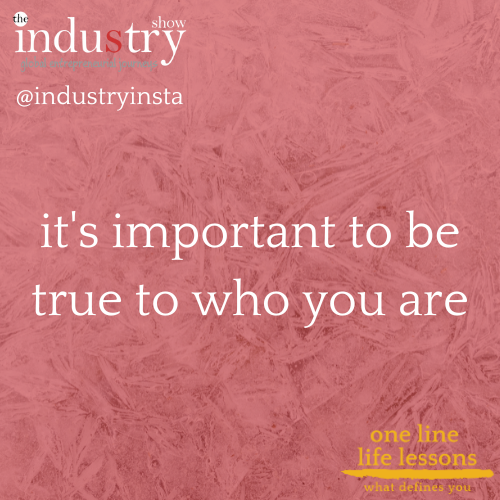
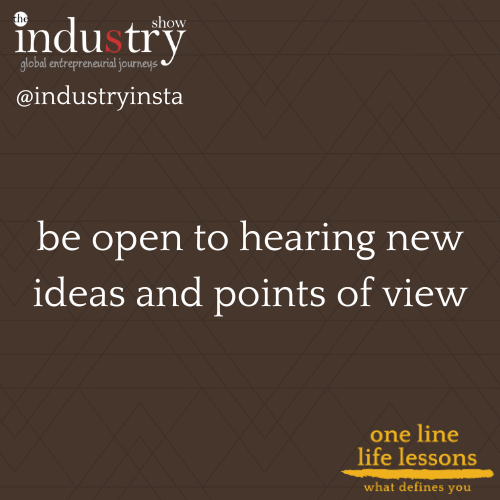
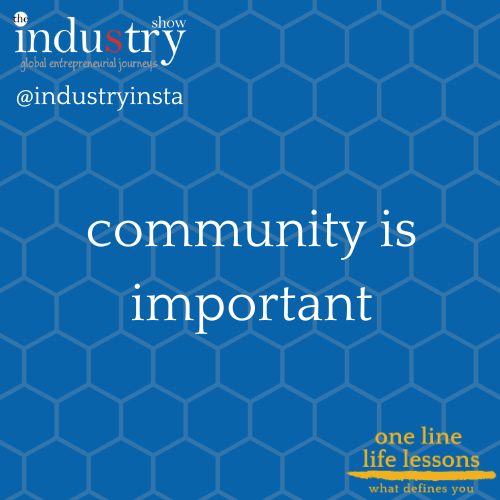
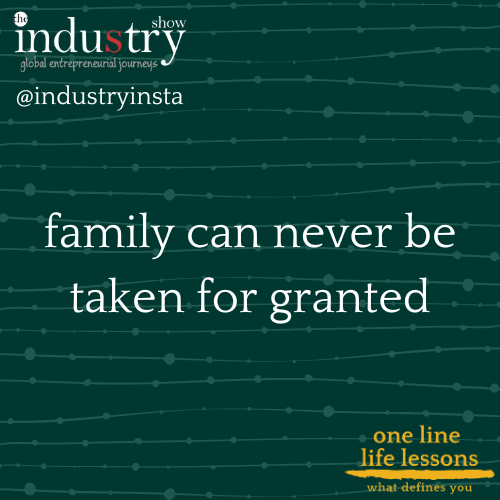
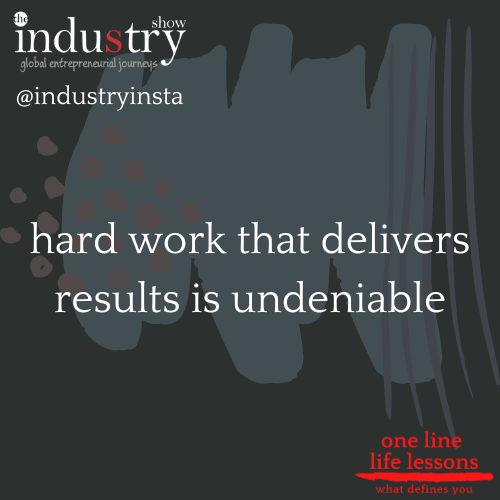
Episode Highlights
- 00:00 – Introduction to Krystle Kaul, a US congressional candidate and national security democrat with a background in public policy and national security working with agencies like the CIA and the Pentagon.
- 03:12 – Krystle Klear Communications, Kaul’s business, assists small businesses in securing defense and government contracts, simplifying the process and enabling effective contributions to the Department of Defense’s mission.
- 06:45 – Specialization of Krystle Klear Communications in strategic communications, messaging, and relationship brokering for defense contracting, helping small businesses rebrand, refine messaging, and win contracts in the industry.
- 09:30 – Kaul’s transition from consulting for big corporations to aiding small businesses in navigating government contracting, highlighting the challenges faced by small business owners and the importance of securing new work consistently.
- 12:15 – Reflection on experiences in conflict zones, interest in political science, and the motivation to give back by running for Congress, particularly in Northern Virginia.
- 15:40 – Emphasis on the significance of foreign policy experience for members of Congress and excitement about leading the ISIS crisis counterterrorism cell in Iraq.
- 18:20 – Reflection on upbringing in Hindu and Sikh traditions, highlighting values such as community service, public service, openness to new ideas, and standing up for what is right.
- 21:05 – Highlighting values like honor, nobility, authenticity, and a focus on environmental issues and sustainability.
- 23:30 – Conclusion with an invitation to learn more about Kaul’s campaign on the Kaul for Congress website.
Show Transcript
Transcript - Full Episode
[00:00:02 – 00:00:12] Nitin Bajaj
Hey, everyone. Welcome to The Industry Show. I’m your host, Nitin Bajaj. And joining me today is Krystle Kaul. Krystle, welcome on the show.
[00:00:13 – 00:00:16] Krystle Kaul
Thank you for having me. I appreciate it. Excited to be here.
[00:00:16 – 00:00:19] Nitin Bajaj
Pleasure is all ours. So let’s start with who is Krystle?
[00:00:21 – 00:01:33] Krystle Kaul
Well, I, am a Virginian. I’m also a New Yorker at heart. Born and raised in New York. I, came down to DC, with an intent to one day get into politics. And, did my studies, largely in DC and American, Johns Hopkins, went and worked on my PhD at Brown University, worked in a bunch of think tanks, like Carnegie and CSIS and Woodrow Wilson and ran because I I really, was interested in a lot of the different public policy topic areas. And, I had a very strong commitment to counterterrorism, because I’m I’m half Kashmiri and half Punjabi. And that really hit close to home when I was in 1989 when I was 5 years old, and I committed my career to national security. So I’ve worked for several three letter agencies, including the CIA, US Central Command, the Pentagon, and I want to now, you know, bring that service into into congress. So I am a US congressional candidate running, for an open seat election coming up on June 18th, and I’m running as a national security democrat.
[00:01:34 – 00:02:05] Nitin Bajaj
It’s an illustrious career. You mentioned some three letter acronym agencies, some of which we don’t even know exist. And and we’ll come and talk about why you’re now running for congress. But before we go into that, tell us about what is, Krystle Klear communication. Give us a sense for what is the, the work you do, and more importantly, what’s the impact you’re you’ve created and and you hope to create through your work?
[00:02:06 – 00:05:50] Krystle Kaul
Yeah. So as I was saying, you know, most of my career has been with the Department of Defense, and, so I had the highest level security clearance. I, was one of the youngest directors to enter the DOD in the highest million rank. I was a GS 15. And, when I went and I started Krystle Klear Communications, it was with an intent to to bring that experience, and be able to help small businesses get a fair shot in the US defense industrial base. So I don’t know if you know, but the military is the biggest employer in the United States of America. And the DOD, right, is a big driver of the economy across the United States and especially in Virginia, where I’ve been for, you know, for several years. And I think that even though we have certifications, we have set asides, you know, women owned small business, disabled veteran, 8 a, all of this. There’s still a lot of, questions about how do you actually get a contract, a defense contract or a government contract. The RFP, request for proposal process, is still a a very big black hole, And, and it can be very intimidating and very confusing for someone who is a small business owner with a great solution, with low cost, you know, and, like, something that really can help advance the DOD’s mission. But there’s a lot more to it than just fill out a technical proposal, submit it, and you’ve just won a contract, you know, for 10, 30, 50,000,000, even $1,000,000. Right? And so I found that I help demystify the process, and that’s Krystle Klear Communications. So it is a business that does strategic communications, messaging, relationship brokering, which is a really big part of it. You need to know whether it’s program managers, whether it’s a director, GS 15, it’s an SCS, someone within agencies or within, a large prime contractor, and you’re maybe subcontracting to them. But, you know, just like most industries work, relationships really matter, and especially so when you’re dealing with, defense contracting because a lot of it’s brokered on trust as well. So I help I helped, you know, small businesses be able to get a fair shot in whether I help like, it’s rebranding, helping them with their messaging. Because if you come you’re a commercial tech firm and, you know, it’s you you’re not gonna simply write your information in war fighting language. How does this help save soldiers’ lives? Right? You’re you’re writing it in a commercial lens setting. But there is applicability of a lot of this technology, be it smart cities, IoT, AAML, all areas where I’ve worked where there is, a use case where it can help, the military. It can help, save soldiers. Right? There’s, whether it’s means of access, whether it’s protection, information sharing. There’s there’s different use cases, and that’s where I really help, very technical folks, you know, explain that and then actually go in and develop the right relationships and then to eventually win this work to get a fair shot of the pie because there’s definitely a lot out there. But, again, it can be difficult if you’re not a big business or if you’re not a no name or if you don’t you’re not a veteran, for example. So, you know, I think that it’s just it’s for the lay business owner, small business owner that that wants to be able to break in. So that’s that’s what my business has focused on doing.
[00:05:51 – 00:05:52] Nitin Bajaj
That’s amazing. You It’s
[00:05:52 – 00:05:54] Krystle Kaul
a play on my name. Krystle Klear Communications.
[00:05:56 – 00:06:33] Nitin Bajaj
And it’s extremely helpful because as you said, there is a lot, that is available for businesses to tap into. But if they don’t speak the language or understand the nuances of how their work and what they have built can be deployed and used on the other side, there’s just a gap and and they’ll never be able to break into that opportunity. So it’s, it makes a lot of sense. Now give us a sense for the the size and scale and scope of, your operations. Are you working with businesses just in Virginia? Are you national, international? And, yeah, who who do you work with?
[00:06:34 – 00:08:39] Krystle Kaul
Yeah. It’s it’s definitely national. I really do like to hone in on Virginia. So I’m partial to clients here, but I have taken clients all over the country. And, so I started when I started the company, you know, you start with who who you’re getting work from, and I started with large businesses, because those are people who approached me. You know, and I I was very new. I didn’t have a website. I didn’t have business cards. You know, I didn’t have any BD budget, anything like that. But, luckily, it’s a small enough space through word-of-mouth, and I was really the only one doing it. Even today, there’s really not many companies that do specifically what I do. Mhmm. So I had, clients like Intel Corporation. So helping them with, IoT, with, Chips Act manufacturing money, the largest manufacturing bill in our history, about $280,000,000,000. InterDigital was a client, and, they do 5 g, largest 5 g patent license company. Companies like Bajaj of New York Mellon, Bain, McKinsey. So I’ve I’ve done consulting advisory at different levels with larger companies. And then, like I said, I shifted the model because I found that lots of people approached me and said, hey, Krystle. We’re we’re in 8 a. We’re in our 4th year. We’re in the red. And, you know, with 8 a status, it’s considered gold on the market. Right? You they should be able to bring in, quite a lot of revenue per year. But, again, it can be a hard barrier to break through if you don’t really know the ropes, if you don’t know the ins and outs of, how government contracting works and how, how exactly how it should be written, who to talk to, and all all of those things. And so so I started taking on more of those clients, you know, the smaller businesses who obviously can’t pay as much. But I did feel like I was, you know, taking expertise I had because I was on the receiving end of proposals
[00:08:39 – 00:08:40] Nitin Bajaj
Mhmm.
[00:08:40 – 00:10:31] Krystle Kaul
Having been a former director. So I’ve definitely I’ve been part of large capture groups like at Deloitte and Booz Allen and Leidos and GDITL. These places where I’ve worked, and I’ve also been on the receiving end because I was a GS 15. So I really understand how that all works from a very deep level, And I understand the struggles of being a small business owner because I myself am a small business owner. And so, that’s that’s a big reason why I thought I wanted to help. And it’s it’s, again, it’s the story of Northern Virginia. Predominantly folks here have a small business and are tied in some way to the DOD Mhmm. Or to a government agency. And that’s what puts food on their table. That’s what, puts a roof over their head, and that’s what, keeps them going. And I also understand the, you know, instability of contracting, and that’s something important. I don’t think you people can quite get that level of stress when you just work a 9 to 5 job and you have that stability. In contracting, if you are tied to a contract, if you’re not tied, let’s say, to overhead in the company, like your internal, then if the contract goes, which could happen, you you’d be let go right away or maybe you get a buffer of a few weeks, a few months at the most. So there’s constantly that stress. And if you’re a small business owner, you have to make sure you keep winning new work, because, you know, you can’t have gaps. Right? Then you don’t have revenue coming in. So there is there is, like, an added stress. And when you’re dealing with the government, with the potential furlough, for example, right, what happens during a furlough? Government workers come back to jobs. What happens to contractors? They typically get cut. And so I’ve lived I’ve I’ve lived to that. I’ve I’ve seen it.
[00:10:32 – 00:10:54] Nitin Bajaj
So you’re working with big businesses, the Fortune 100, then you shifted the model helping small businesses. What made you decide to run for congress? I mean, you you said you always wanted to, and that’s what made you move to Virginia a bit. What’s the why behind why now?
[00:10:55 – 00:13:19] Krystle Kaul
Yeah. I mean, I’ve been in Virginia for a long time, DC and then Virginia. Right? And I’ve worked here for years. Right? I mean, the DOD is based here in Northern Virginia, and all these, you know, defense counter agencies are here. So I’d take, I’d take 2 reasons. 1, at an early age, since a teenager, I had an interest in political science. Right? So I committed 3 degrees to international relations and political science. I was even a women in politics minor in college. So that was there at an early age. Like I said, I was even working I was working on Capitol Hill in college for congressman Marty Meehan. He’s a democrat from Massachusetts. I have done my service in the national security space. So similar to there are about 9 members of congress who come from a national security background. And so I am very proud to call myself a national security democrat. And I saw the effects of MAG Extremism working under a Trump administration. So even though I was a civilian, I was not a political appointee. I was not in no way tied to the former president. I saw, our troops being put at risk. I saw, a toxic work environment for women and minorities, in the White House, in the Pentagon, across the board because that was the ideology that was being spewed all over, and I resigned during that time. So shortly after secretary Mattis resigned. And I had committed to myself saying that, you know, the early interest was always there. I’ve gone in to this place of service, taking an oath, and I’m the granddaughter of immigrants. Right? My grandparents came here and parents immigrated here from India, for a better life, and that they provided that for me. And I, you know, got to live that American dream to the point where I’m afforded the opportunity to even run for congress today, and I wanna be able to give that back. So I think that that’s really the why. And, now I’m in a position where, I’m able to take all of that practical on the ground experience and now apply it, apply it in congress, and and we’re better than here in Northern Virginia, which is a 44% minority district. It’s extremely diverse.
[00:13:19 – 00:13:19] Nitin Bajaj
Mhmm.
[00:13:19 – 00:14:38] Krystle Kaul
It’s female friendly. It’s a place that really celebrates women in defense. Right? The woman running for governor, Abigail Spanberger, is a, you know, she’s a heroine of mine. She’s, she comes from the CIA. So this is a place where, I can relate to the average voters, the average constituents, on many levels as a small business owner, as a former defense official, as an educator. I also teach at MIT remotely. And so I get affordable accessible health care. I get a lot of the issues and the struggles, the instability of contracting that people face every day, and I want to take all that experience and bring them to congress. And I’ll just and highlight also with all the international crises going on right now, Israel, Palestine, and you can all of that. I have experience in 71 countries. I have lived in several conflict zones. I’ve lived in Israel Palestine, in Lebanon, in in Kashmir, in different areas. And I think that most people coming into congress don’t have that perspective, and nothing beats that kinda on the ground perspective. And if you see how long it took to pass the aid package, right, I think you need we need members who can, have that kind of foreign policy experience because it’s important, coming in.
[00:14:39 – 00:15:05] Nitin Bajaj
So first off, thank you for doing what you’re doing. Probably, it is something that, we all aspire to contribute to. And, you know, as you’re going through this journey as a small business owner, as a as a public service agent, give us in about a, you know, minute, what’s the one big challenge you’re facing?
[00:15:07 – 00:15:08] Krystle Kaul
In my run?
[00:15:09 – 00:15:15] Nitin Bajaj
In your run or even as a as a small business owner. And if you would call out one big challenge, what would that be?
[00:15:16 – 00:15:48] Krystle Kaul
Yeah. I think in my in my run, people are asking why. Right? Mhmm. So telling them that, and then just just raising name ID. So I think that’s a that’s a big challenge when you’re not a formally elected official. You’re now just getting the message out, to as many people as you can, and so that takes a lot of fundraising to run ads, to send mailers out. Right? It’s a it’s, running for office is a business in and of itself. And, I’d say awareness is is the number one challenge. Yeah. It’s because as soon as I touch people, my message resonates. Right? And so the worry is in an election, not enough people have have been touched. Right? They haven’t seen your ad. They don’t they they haven’t heard. So you’re just constantly trying to to get your word out there and create that awareness to enough people so that they they know about you to then vote to then vote vote for you. And I’d say in my business, the hardest challenge is, something similar. Right? But just advocating for small businesses that I know have great solutions, you know, whether it’s, like, the IIT alum run business, whether it’s the African American run business or disabled veteran or women owned, what what have you to say, hey. This like, you gotta look at, the solution. You’ve gotta see it’s cost effective. It’s, super efficient. It can really help your mission this way, and it’s the same kinda thing. People will ignore the the lesser known name
[00:16:51 – 00:16:52] Nitin Bajaj
Mhmm.
[00:16:52 – 00:17:05] Krystle Kaul
Businesses that they might not have worked with or is are not in their in their circle, in their sphere. And so I’m constantly doing that marketing and that, advocating for them.
[00:17:06 – 00:17:14] Nitin Bajaj
Makes sense. Now on the flip side of challenges come opportunities, what’s the one most exciting, that you would like to call out?
[00:17:17 – 00:17:18] Krystle Kaul
Opportunity in what sense?
[00:17:19 – 00:17:29] Nitin Bajaj
Again, in your life, personal, business, or, any other aspect. Right? What’s the one most exciting thing you would like to share with us?
[00:17:30 – 00:17:31] Krystle Kaul
That oh, that’s happened in my life?
[00:17:31 – 00:17:32] Nitin Bajaj
Mhmm.
[00:17:35 – 00:17:55] Krystle Kaul
I think that, having the opportunity to, to Klear, the ISIS crisis counterterrorism cell, it was a night shift political military carousel for Iraq, was extremely exciting. It was exhilarating, and super rare. Right? We were at a time of war, and I, you know, this was a 17 hour night shift that got stood up. You’re briefing 4 star commanders, and I got to work with secretary Austin, who’s our current secretary of defense. He was then general Austin. Being able to work, you know, on a targeted cell like that, it was only a 100 of us, was was really exciting. And to be able to, to really say, you know, I helped to safeguard America.
[00:18:26 – 00:18:27] Nitin Bajaj
Mhmm.
[00:18:27 – 00:18:36] Krystle Kaul
Right? And our assets is, is, not something that I think anyone Nestle gets an opportunity to do that. So for me, that was really exciting.
[00:18:37 – 00:18:58] Nitin Bajaj
That’s amazing. Now any experience along a similar, doesn’t have to be from your professional life, could be professional, could be personal, where things did not work out as you had expected and there was failure, maybe a lesson that was, lesson or 2 that, came about.
[00:19:00 – 00:20:41] Krystle Kaul
A failure in my life. Yeah. I think that I’m trying to so I think that I’m trying to, like, phrase this in the right sense. So when I was working with the DOD, right, and I was this director, in that position. I, really want to push through. I wanted to keep you know, I had gotten this position at such a young age. I was, very honored to have that and I I I often view quitting as a failure. And oftentimes, it can be an opportunity when it’s the right circumstances. Right? Like, and it’s all about perspective how you look at it. Right? I mean and so I think seeing our secretary of defense who I you know, secretary Mattis is a very honorable secretary of defense, very respected. You know, seeing him draw a line and say, if you do this, I’m I’m going to to leave my cabinet position, was was really inspiring. And, I saw it as, you know, you can look at it as an opportunity and not as a failure. So it’s kind of double edged in one way. Right? In some cases, Nitin that moment, I thought, is this is this mean I failed? Like, is this a failure, or is this really an opportunity? And I think at that moment, I might have seen it, you know, in that lens because it’s it’s difficult to leave something, but I look back now and see it as an opportunity. So
[00:20:43 – 00:20:53] Nitin Bajaj
Makes sense. Now coming to my favorite part of the show, I’d love for you to share your one line life lessons with us.
[00:20:55 – 00:22:38] Krystle Kaul
Yeah. So first, I’d say, hard work that delivers results is undeniable. And he and I’ve used it throughout my life to drive my success. He came to this country with nothing, but he had a dream, and he, he worked really hard. And I’m really proud of the fact that he rose, and he became the number 3, agent at New York Life. And he worked very diligently every day. He taught me the big value of follow-up, which is something that I also use in my business and in in my campaign. Second, family can never be taken for granted. You never know how long, you have with those, you love, so cherish it. I, was very close with both of my grandparents, and I sadly lost both of them in the in the past 2 years. And, I surprisingly lost my grandmother first, and she was 10 years younger than my grandfather, and we never expected that. So you just never know how long you have with anyone, and they’ve really helped to raise me. Community is important. So pull from your life in both religions. You know, in terms of I’ve gotten a lot of, lessons from being Hindu and Sikh. So in my case, I’m birligious, and so I think that my sense of community service comes from twofold. It comes from a serve a sense of serving langar and oneness, which is a very Sikh, tradition.
[00:22:38 – 00:22:39] Nitin Bajaj
K.
[00:22:39 – 00:24:12] Krystle Kaul
And it also comes from being half Hindu as well, and about the notion of of giving back, right, and doing good karma. Right? So I think that both of my religions have really helped me in, and have taught me the value of community service and and now public service. Be open to hearing new ideas and points of view. I think that’s something that I try to do every day. So I I make sure that was I as I do voter interaction, like, I talk to people. I say, I try not to just say, here’s my agenda, and this is it, but I also try to get feedback. You know? Here’s my agenda. Here are my core values and my principles. What are your issues? Like, what how do I help improve this? What are some pain points you’re dealing with? Do I maybe expand my agenda because enough people care about it? Right? And I’ve seen that here. Like, the environment’s a really big issue, something that I hold very true to myself. Sustainability, I was, you know, the only congressional candidate invited out. I spoke during COP 28, and, I know energy is is a really important and predict the environment is really important. So and then standing up for what’s right. So I think that sometimes it can be difficult to do, sometimes it can be challenging, but it’s important to be true to who you are. I I hold, honor, nobility, authenticity very as, like, very core values, and I think you need to to stand up for what’s right in the world.
[00:24:14 – 00:24:33] Nitin Bajaj
Krystle, thank you so much for sharing your one line life lessons. But a bigger thank you for doing what you’re doing with the public service. We wish you all the best luck for your campaign Nitin business. We really appreciate it. We’d love to bring you back on.
[00:24:33 – 00:24:34] Krystle Kaul
Thanks.
[00:24:34 – 00:24:42] Nitin Bajaj
Yeah. After the campaign is over, when the and, talk about more of your successes and lessons.
[00:24:42 – 00:25:05] Krystle Kaul
Thank you. And I’ll just I’ll just say if anyone wants to learn more or, to get to know me or support, it’s Kaul for congress. Also play in my name. It’s kaul forcongress.com, support. Reach out to me. There’s an, you know, an email, phone number, everything on there, and, I appreciate you taking the time today to, to talk. I’ve I’ve enjoyed this. Thank you.
[00:25:05 – 00:25:07] Nitin Bajaj
Likewise, Krystle. Thank you.



